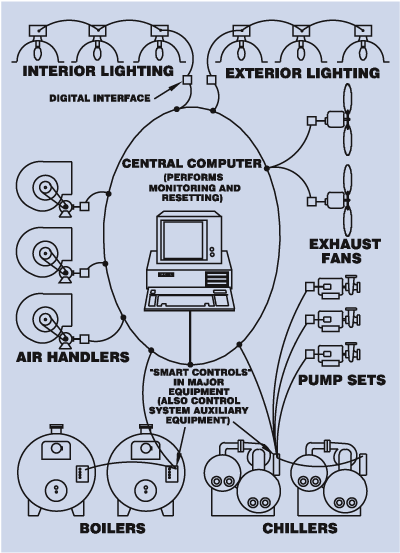Overview of…
Note 13. Energy Management Control Systems
An energy management control system (EMCS) is a centralized computer control system that is intended to operate a facility’s equipment efficiently. Energy management systems can be applied as part of many of the energy saving measures of the Energy Efficiency Manual.
These systems are still evolving rapidly, and they are controversial. This Note will keep you out of trouble by explaining the important issues. The most important issue is whether or not to install a system. Some applications are appropriate for computer control systems, and many are not. A range of simpler alternatives are available.
You will learn the advantages of building automation systems, including monitoring, report generation, and remote control of equipment. You will also learn the pitfalls, including system cost, skilled staffing requirements, software limitations, vendor support, rapid obsolescence, and lack of standardization.
These systems are also known by a variety of other names, including “energy management systems” (EMS), “smart building controls,” “building automation system” (BAS), etc. A system typically has a central computer, distributed microprocessor controllers (called “local panels”, “slave panels”, “terminal equipment controllers”, and other names), and a digital communication system. The communication system may carry signals directly between the computer and the controlled equipment, or there may be tiers of communications. The Note illustrates these variations.
Click here to return to the Table of Contents


